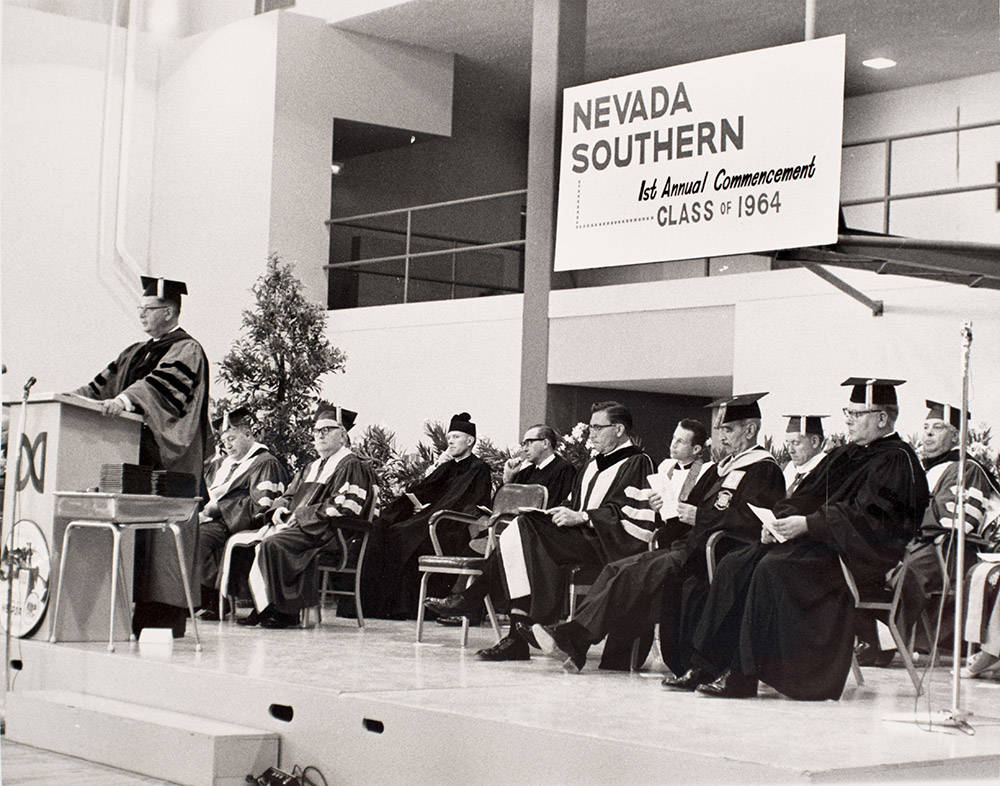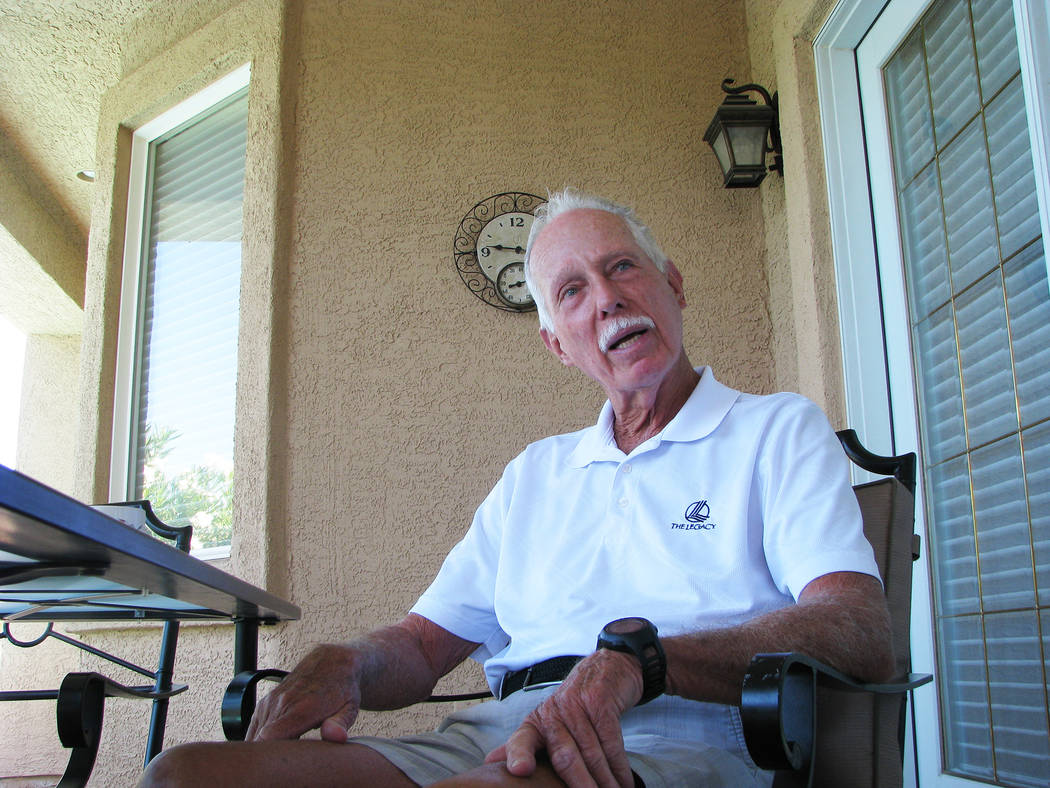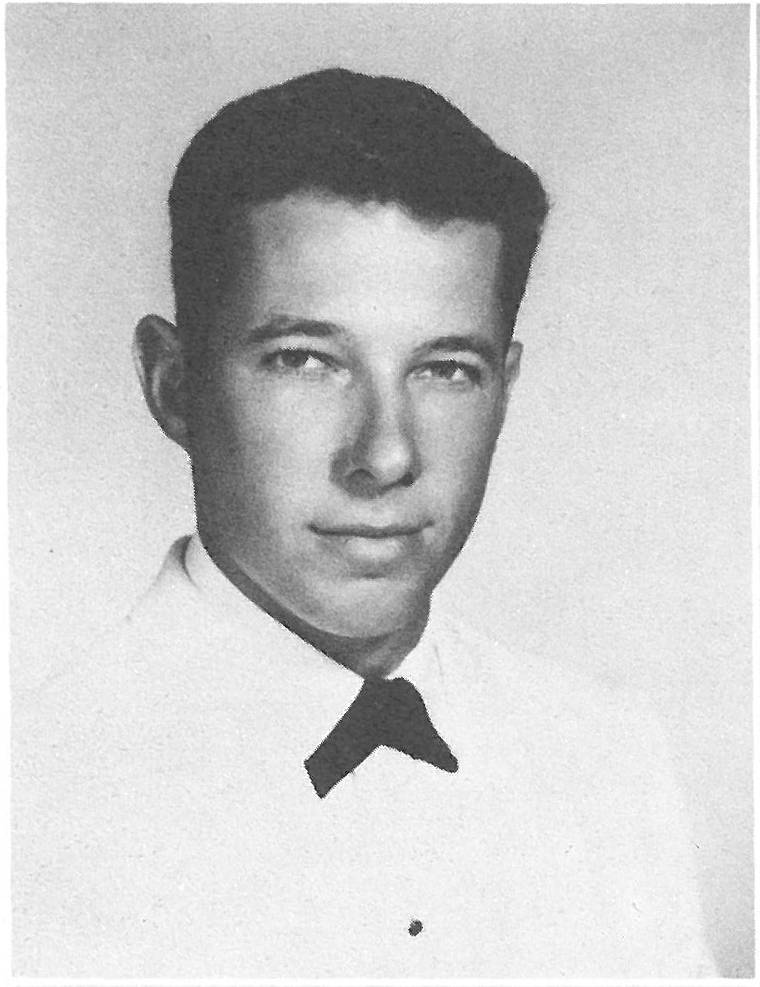UNLV’S first graduate recalls a markedly different school
In the late 1950s, Jon Cobain wanted to see the world, but his blue-collar background and lack of experience made that a challenge. That changed when he became UNLV’s first graduate.
He ended up working in six countries and 35 states and has visited about 70 countries. He speaks Spanish and knows enough of four other languages to get by in casual conversations.
The school opened in 1957 as the Nevada Southern division of the University of Nevada. It wasn’t accredited. It initially operated in high schools in the evenings, and when Cobain was attending, there were four buildings. Jokesters from the more established University of Nevada in Reno derisively called it Tumbleweed Tech or Parasite U — a play on its Paradise Valley location.
“There has been a rivalry between the two schools from the beginning,” said Eugene Moehring, a retired UNLV professor who wrote the book on the school’s history, ‘The University of Nevada, Las Vegas, A History.” UNLV got much less money even when it had more students until about 2013, when the funding for the two schools was equalized.
The school was necessitated by the rapid growth of the valley, which exploded from 8,500 residents in 1940 to 25,000 in 1950. Las Vegas’ population surpassed Reno’s in 1955; it now drawfs it, with 613,000 city residents to the “Biggest Little City’s” 236,000. Moehring added that the Cold War and the creation of what’s now Nellis Air Force Base also contributed to the need for UNLV.
“The G.I. Bill promised all servicemen a college tuition if they wanted to go to college,” Moehring said. “The University of Southern California was planning to open an extension school in the valley, and that bothered the Nevada regents.”
Cobain found there were advantages to attending a plucky upstart.
“The school had no cachet, so it would take professors who were medically retired or age retired from other universities,” he said. “I had an outstanding professor for psychology, Jacob Orleans, from New York University.”
Cobain also fondly remembered Andre Simmons, a multinational and multicultural expert who had taught at the London School of Economics, and Rex Johnson, who had been the head of the foreign-service program at George Washington University in Washington, D.C.
“He was an interesting source of information when I was trying to figure out what to do for a career,” Cobain said. “I considered the foreign service and the law.”
Eventually he settled on business. He spent his freshman year at what’s now called the University of Nevada, Reno, but returned to Las Vegas for the remaining three years.
Cobain’s mother came to Las Vegas from Utah and his father moved from Rhode Island. Growing up, Cobain worked about 30 hours a week during the school year.
“I worked at the Nevada Test Site in the summer of 1962, and I everyone I knew who worked there got cancer,” said Cobain, who also got cancer and said he has been cancer-free since 1999. “The low-level jobs like I was working were the most dangerous.”
Commencement ceremonies took place in Reno until June 3, 1964, when Nevada Southern had its first official graduation. Senior class president Cobain was the first of the 29 graduates to receive his diploma.
“(Gov. Grant Sawyer) was there and the chancellor of the university came down from Reno,” Cobain said. “It was a small affair held in the gym with the basketball hoop featured prominently in the background.”
After receiving a Master of Business Administration degree from Nevada Southern he was accepted at Stanford University, Columbia University and the Wharton School of the University of Pennsylvania, and he was offered full-tuition scholarships at the University of Chicago and Northwestern University. The latter offered him a full degree in less time, and he took it.
He finished at what’s now UNLV with no debt and $4,000-5,000 in the bank. He realizes that’s unimaginable for today’s grads.
“I am concerned about students today who end up going deep into debt to get an education,” Cobain said. “You don’t have to go to some expensive school. You can get a good education anywhere. If you’re interested and you do the work, you’re going to learn a lot of stuff.”
Even if it’s at a little school on a dirt lot with no accreditation and a staff of and misfit teachers.
























